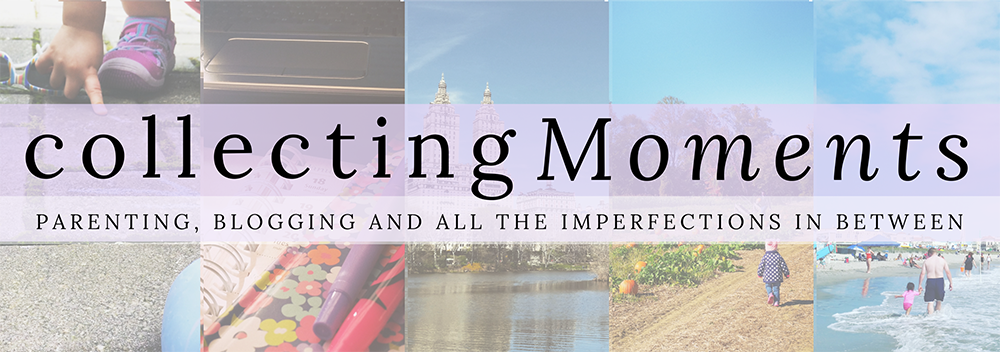Debbie's story is not an ordinary one. She is an advocate of a productive lifestyle, striving to give career women the tools to be healthy and stress-free. And she does this while being a survivor of a serious brain tumor. Her perspective on kindness is not only genuine and heartfelt, it's also invaluable--not just to us parents, but to anyone who's fighting a battle, or has been a warrior all their life. Whether it's health related or otherwise, heed her advice on kindness: it can can help you heal!
You’re a survivor of a serious brain tumor. How has your path to recovery changed your view point on kindness?
You’re a survivor of a serious brain tumor. How has your path to recovery changed your view point on kindness?
After months of
limited activity (mainly compared to my lifestyle before surgery), my
priorities changed. The idea of (self-)kindness as a way of life grew inside of
me.
I learned the
hard way the effects of stress and lack of self-love.* I made the decision that
I was going to prevent that others went down the same way.
While at first
self-kindness was the biggest lesson, going back to the roots of compassion and
simple things played an important role in my inner-healing process, as well.
*Note: I don’t
mean that stress was the cause of my tumor. Not even science can’t pinpoint its
causes yet. However, my life quality was seriously damaged for a long time due
to my neglecting myself as a human being and putting the “professional” above
everything.
Who/what inspires you to be kind? Explain why they/it
inspires you to do so.
Learning how to say “no” was the first step. I set up limits and made sure they were respected for my own sanity and to avoid creating unrealistic expectations.
The other thing was listening to my body. Instead of waiting until it shouted for help, I started to pay attention to its whispers. It was the difference between health and disease.
My mother and her
parents are role models of kindness to me.
In our home,
everyone was equal and therefore, deserved the same portion of respect, love
and attention.
If I had a friend
over, we were always served together, no stars. I was always told how my
attitude could make a difference and that everyone was supposed to do their part
for the sake of life in society.
Love was the main
drive of our actions and attitude.
It’s important to be kind to others, but it’s just as
important to be kind to yourself. What do you do (or plan on doing) to be kind
to yourself (as a professional or as a woman)?
I have a feeling
that women in general have the tendency to put everyone before them. While it’s
a beautiful and honorable thing to do, it should not be at the cost of their
well-being.
It took me years
to realize I could not solve everybody’s problems. (shocking, isn’t it? And I
know I’m not alone)
It didn’t matter
how many sleepless nights I had, how many meals I skipped or how overbooked I
was, there were still things I couldn’t do despite all my best efforts.
Learning how to say “no” was the first step. I set up limits and made sure they were respected for my own sanity and to avoid creating unrealistic expectations.
The other thing was listening to my body. Instead of waiting until it shouted for help, I started to pay attention to its whispers. It was the difference between health and disease.
It’s often said that kindness is easier said than done. What valuable advice can you give to those who are struggling to be kind to others or to themselves?
There’s not a
perfect form of “kindness”. Kindness is not a race with a finish line. It doesn’t
have a pre-defined shape or form. It’s the manifestation of inner feelings
hospitality towards others.
For some, it may
represent opening their homes to a person in need, for others, it can be the
donation of food or money. There’s also taking care of a sick relative or
caring grocery bags for an elderly person.
Many times, a
smile is the absolute form of kindness, and it costs nothing and requires
nothing in return. Saying good-morning to people we meet is also a way.
Instead of
looking for a standard way to express kindness, we must open ourselves to the
(small) opportunities presented to us on a daily basis. When we do so, it’s not
difficult at all.
What’s the most important lesson parents can give their
children about kindness?
Leading by
example is THE lesson not only parents but adults in general can give the
little ones.
Children are like
sponges absorbing the environment around them. Words have a secondary
importance to them. Behavior, on the other hand, is what truly serves as
guideline for the formation of their personality.
Parents must
start by being kind to themselves and showing their children it doesn’t imply
neglecting them.
A mother who gets
involved in regular physical activities, for example, cannot be considered
egoist. In fact, she’s planting the seeds to a healthy adult in their children.
They can also
teach kids how to:
•
be
kind to their peers
•
see
the planet as their home
•
respect
the environment around them
• aim
for the best without the cost of others & develop self respect
Sharing my post here





No comments:
Post a Comment
Your comments make my day! Thank you.